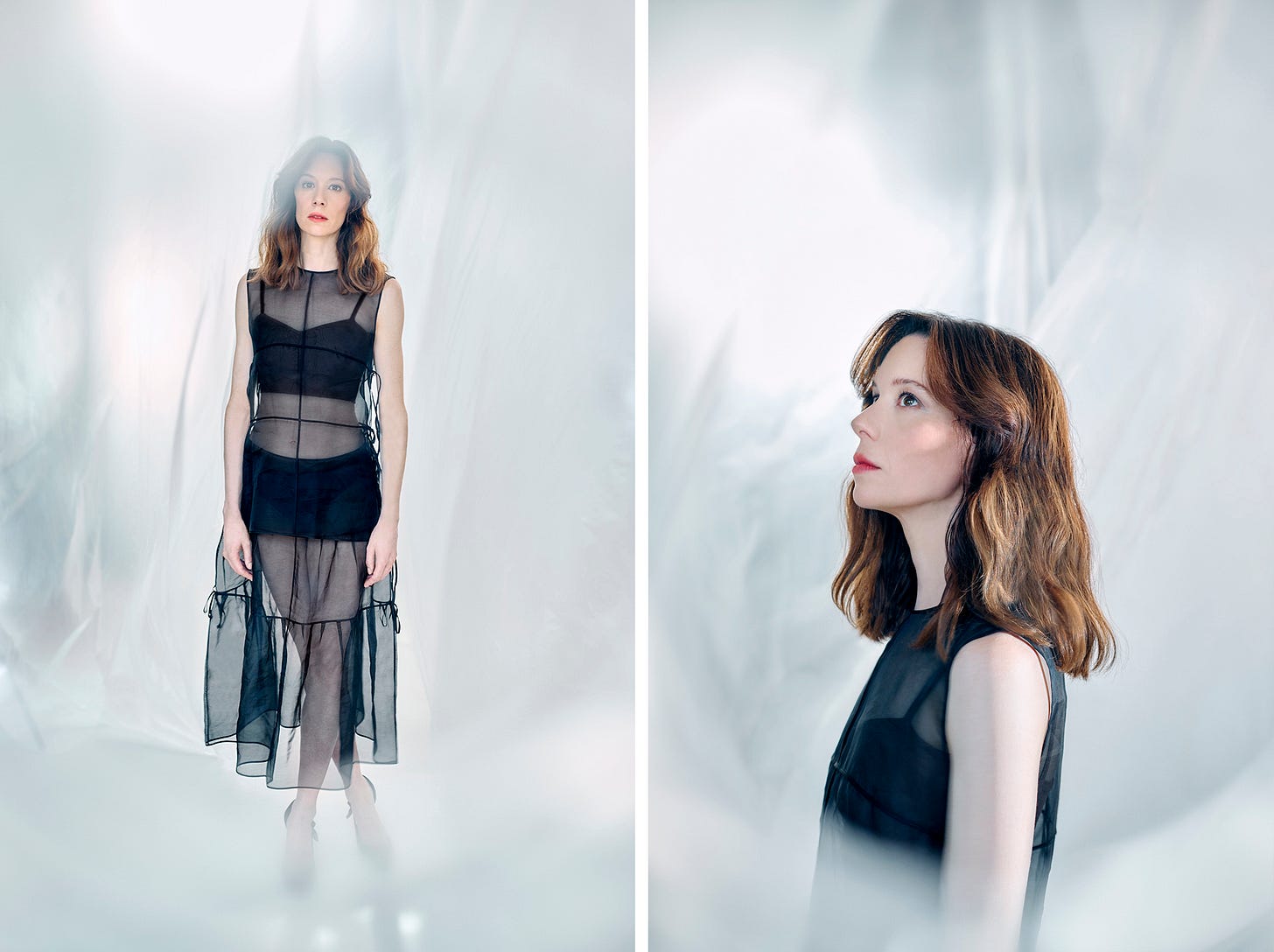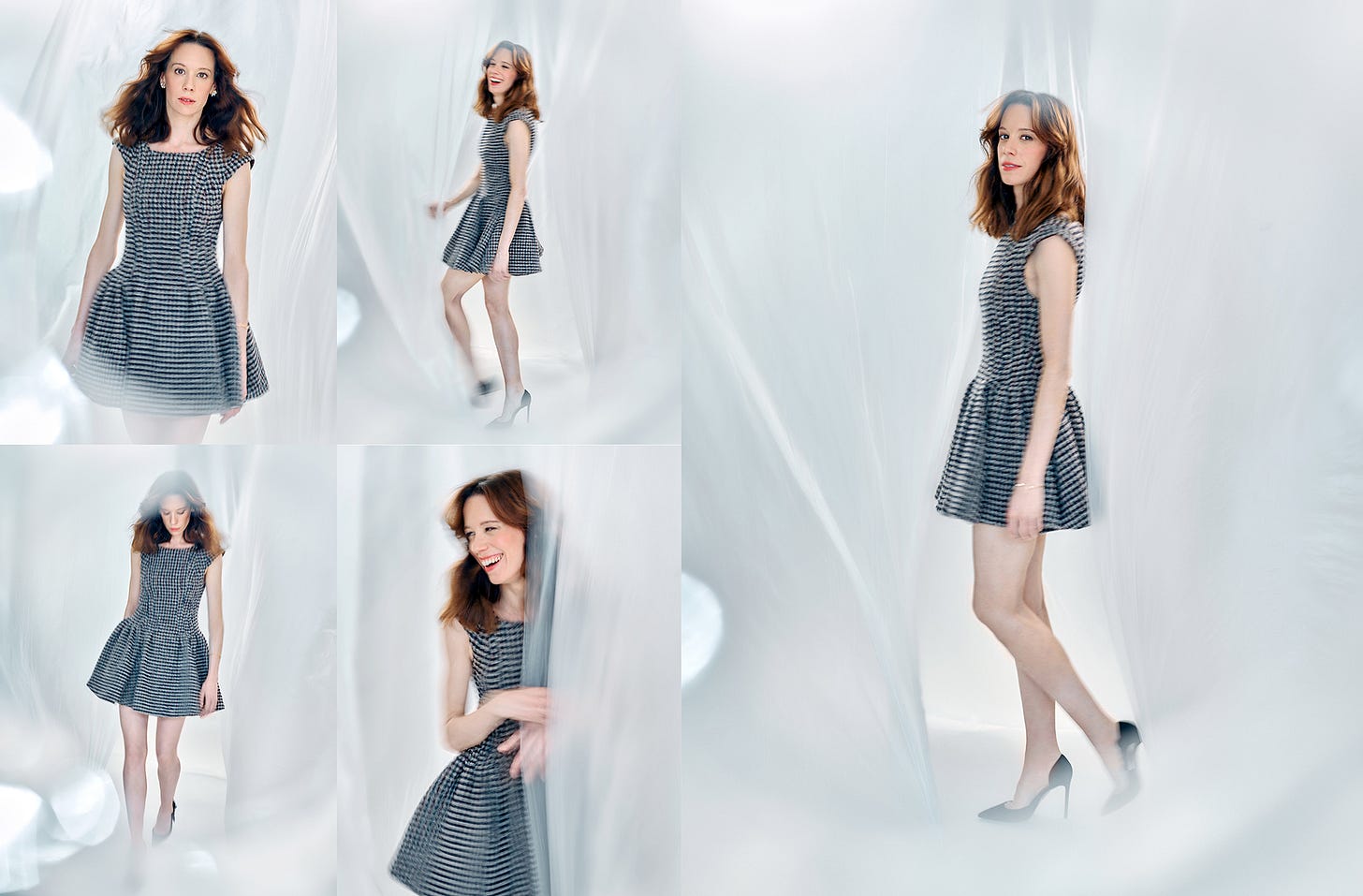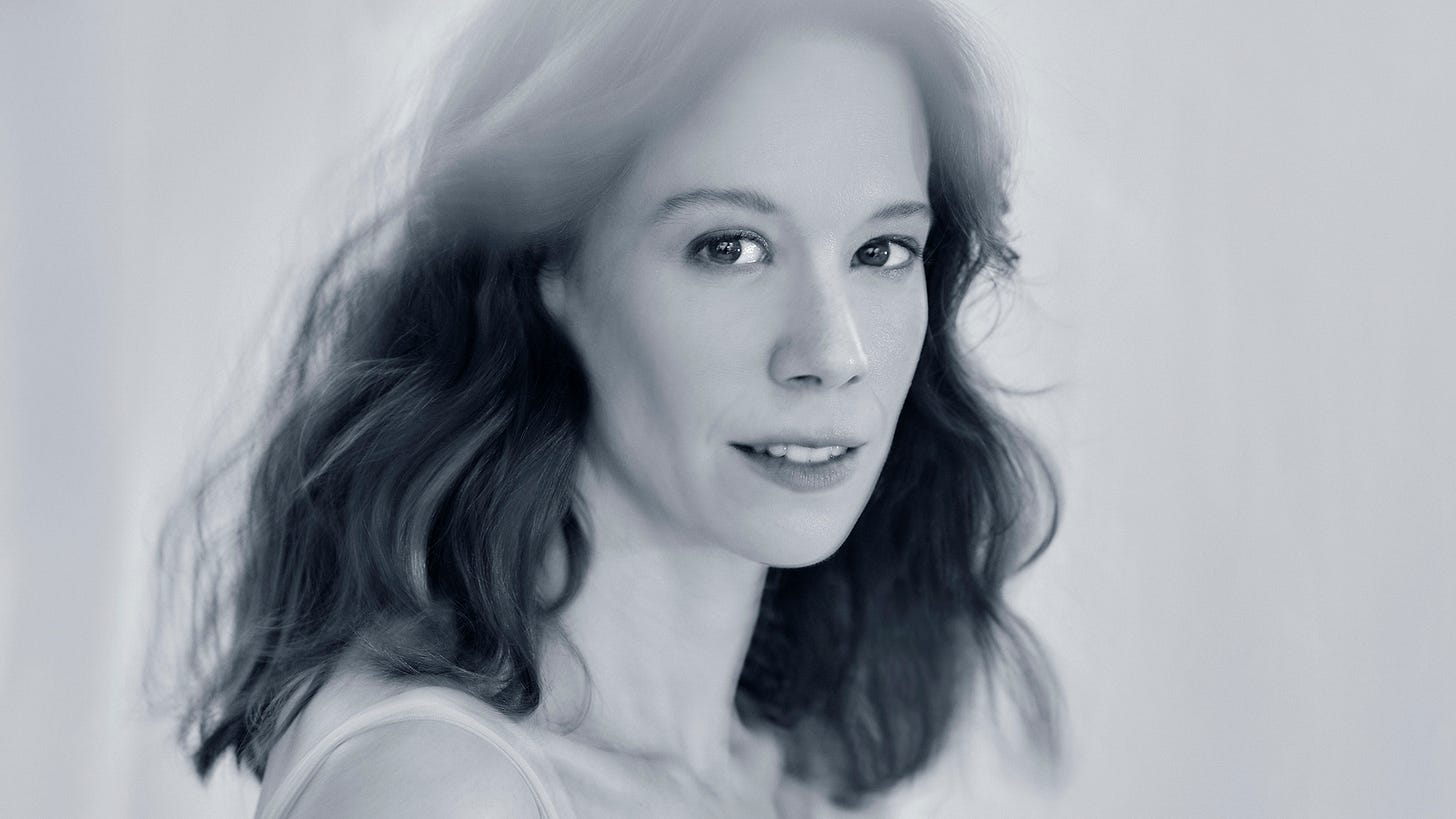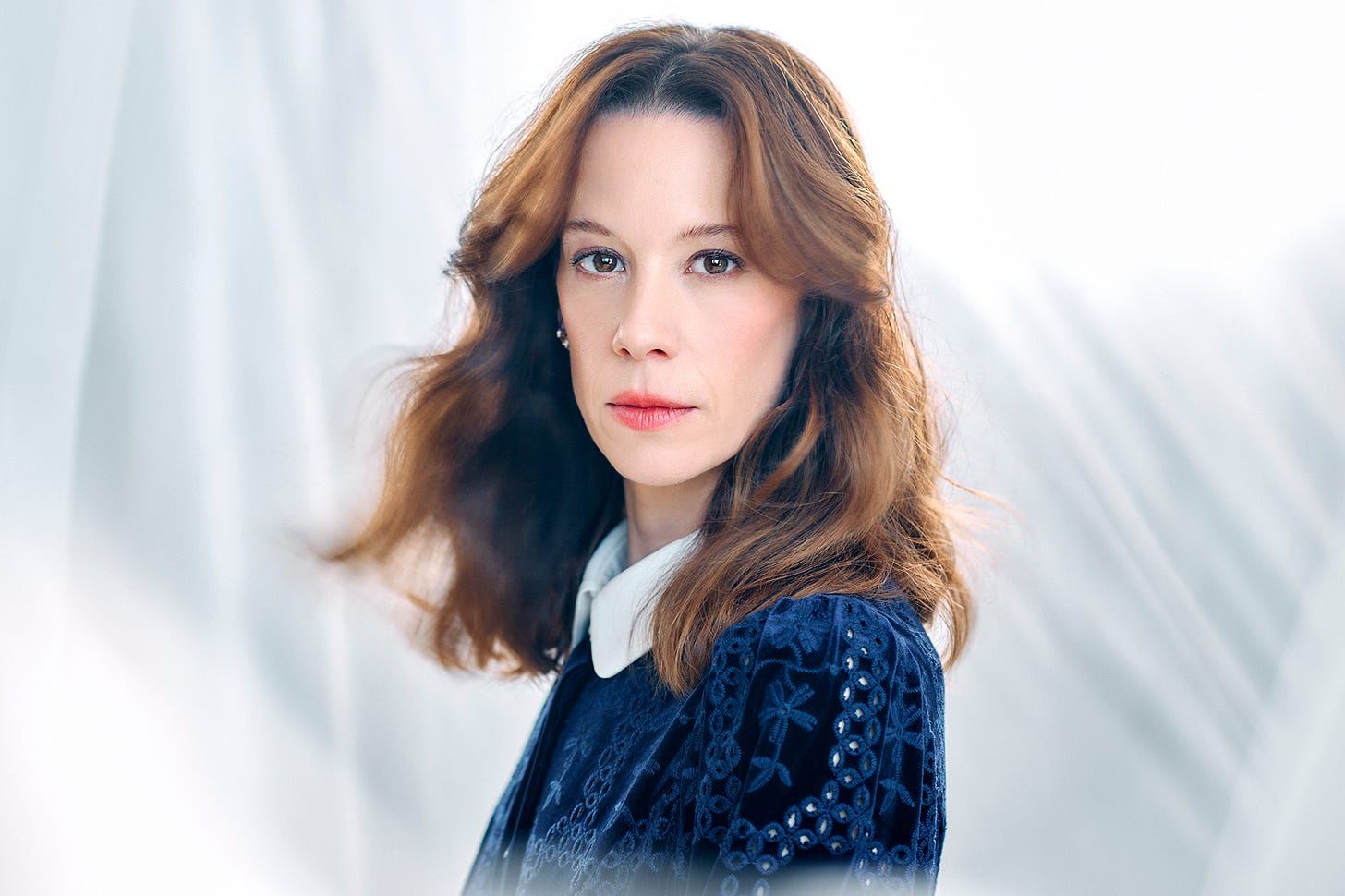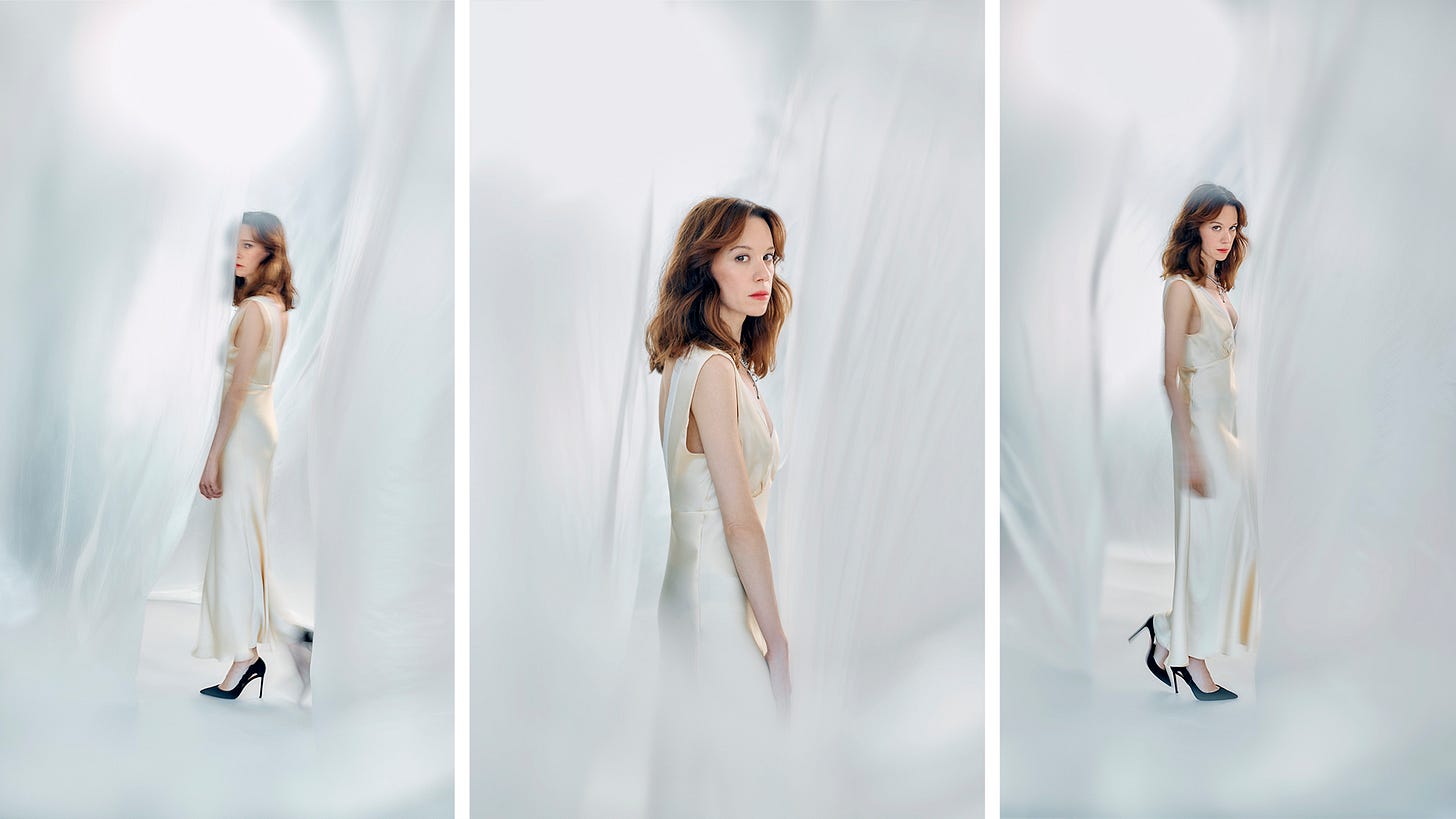Chloe Pirrie - The Outsider Takes Centre Stage
Chloe Pirrie has built a career playing women on the edge. Isolated, overlooked, quietly unraveling. Now, the actress long drawn to outsiders is finally claiming the spotlight for herself.
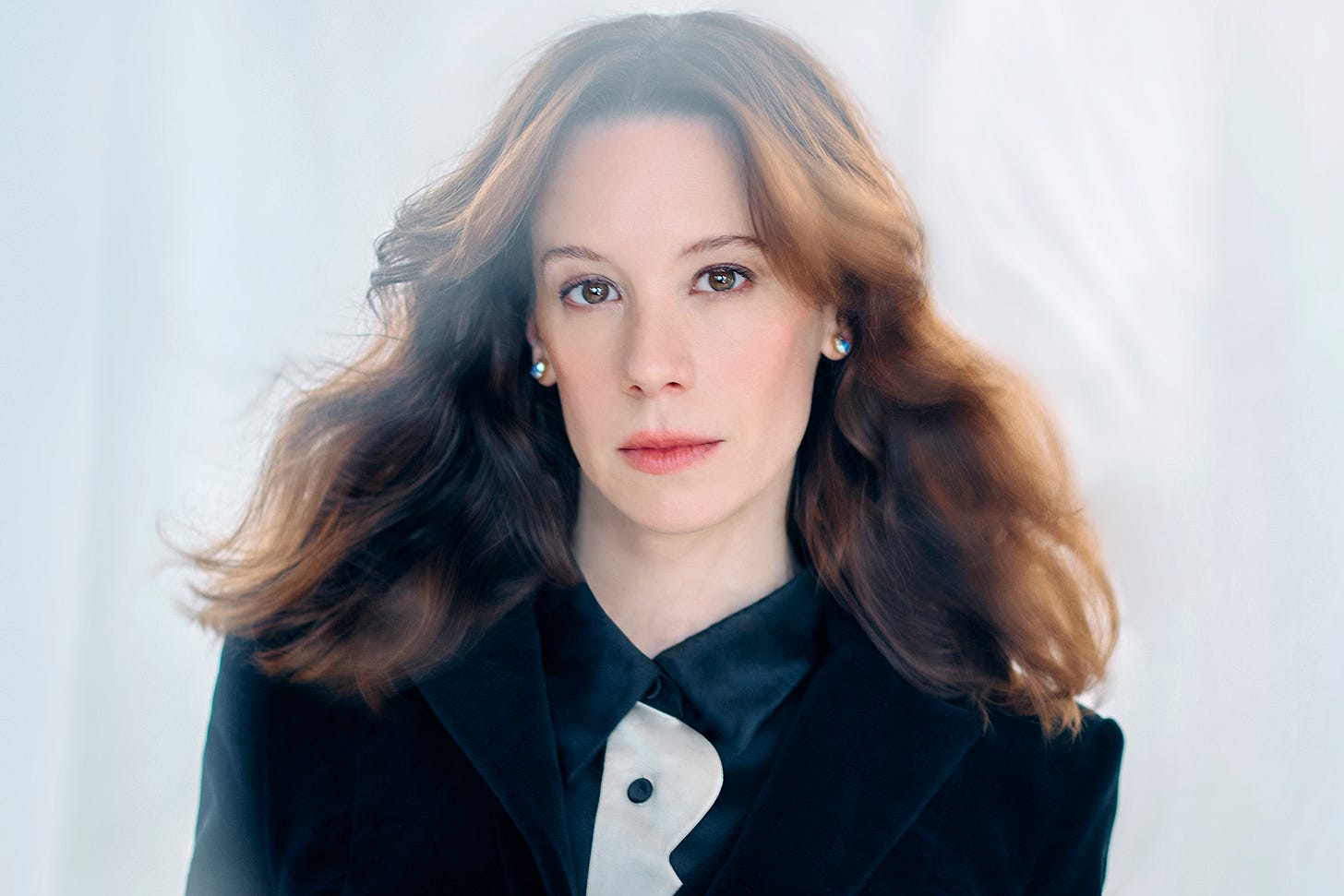
Portraits & Interview - Perry Curties
Styling - Lily Lam
Makeup - Isabel Concetta at Premier using Armani Beauty
Hair - Alex Szabo at Carol Hayes using Sam McKnight
Photo Assistants - Piotr Rulka & Jess Lax
Fashion Assistant - Lina Levein
I want to hug Chloe Pirrie when I first meet her. Not because she looks like she needs one — she’s calm, early to arrive, and softly self-contained — but because I only
finished watching her character in Dept. Q last night, and I’m still emotionally wrecked. For most of the show she’s trapped, isolated, and visibly unraveling. Watching her perform is like holding your breath for six hours. Now here she is in front of me, very much alive and offering a gentle smile. It’s all a bit disorienting.
You’d be forgiven for thinking she’s just now making her entrance into public consciousness too. Her current role — in Netflix’s latest series has all the trappings of a star-making turn. And yet, Chloe has been doing this for years. Carefully. Quietly. Picking roles that never quite sit in the centre of the spotlight, but instead hold your attention in the edges, the margins, the moments that linger longer than you expect. So people watching Netflix may well ask - ‘Where did she appear from overnight?’
She laughs. Its a confident Scottish laugh, perfectly pitched to rebuff such a cheap
question, and it’s followed by the revelation that acting success didn’t just fall on her plate, although plates did have a major role in her journey.
Before her film career took shape, Chloe was waitressing in Camden, juggling split shifts and late buses, enduring that humiliating rite of passage many actors face. One
particularly grim night, a table walked out without paying and she had to cover the cost.
“Then someone spat on me while I was walking home. I missed my bus. I just… I couldn’t do it anymore,” she says. “I got home and said, ‘Why am I doing this?”
It wasn’t a dramatic quitting moment. More of a quiet decision to let go of the backup plan and trust the path she was already on.
“I got in to my boyfriend and he was like, ‘Well, why are you doing this?’ Every creative person probably reaches that point where they have to let go of the second job for survival and just trust. They are where they’re meant to be, and you might have to go back to it, but there’s no shame in that as well. But also just trust where you are.”
She smiles. “It did work.”
We laugh about how this story would be seen as a rite of passage in Los Angeles, a practical and completely acceptable stepping stone towards a creative dream, “but here, everybody thinks you leave drama school and you just become…”
So, how did she become the actress she is now? Born and raised in Edinburgh, Chloe felt the gravitational pull of creativity early on.
“I think I just had a feeling of wanting to be part of something. I think anyone creative has this sense that there’s something amazing out there away from where you are currently that might offer you something else.”
That feeling sharpened into focus after seeing a performance of Look Back in Anger in Edinburgh.
“It was David Tennant and Kelly Reilly and just being like, whoa, really amazed by it.”
Cinema, too, played its part.
“Jodie Foster was somebody who I can really remember having a strong effect, I don’t really know what I was admiring, but I just remember being like -
something about this really speaks to me. But then, of course, you go off to drama school…”
British drama schools are often regarded as the best in the world and have
produced a lot of major talent but the failure rate is high and Chloe’s experience was as difficult as any I’ve heard.
“It took me 3 tries to get into drama school. When I finally got in I was hugely challenged by it. It is such an intense thing to do, you learn so much, but you’re so young and you see people graduate around you who are convinced that they are going to be a stars immediately.”
When she did eventually graduate, it wasn’t with a sense of arrival. More of a cautious
optimism.
“I didn’t leave drama school thinking I was going to work loads, because it was hard for me to even get into drama school. It was hard when I was there. I think they
respected me, maybe thought I had promise, but I didn’t feel very favoured. I just left thinking, Oh, maybe I’ll wait and see what happens.”
What happened was Shell, her breakthrough in the Scottish indie that won critical acclaim and gently etched her name onto the radar of casting directors and filmmakers looking for something a little different.
“I’ve played loads of quirky and unusual,” she reflects. “People who are peripheral to the story or are coming in memorably in some form, but they’re not necessarily the center of it.”
But they’re not forgettable either. Shell, for one, was unforgettable. A slow, spare film about isolation and identity — and Chloe carried it.
“Yeah, she’s an outsider. She doesn’t know.”
That’s a theme that has run, quietly but consistently, through much of her work. “When I think about Shell, and then I think about Emily Brontë, who I played, it’s
completely different people, but there is a shared quality.”
That quality — a certain friction between the character and the world around her —has become something of a trademark in Chloe’s performances, is it something she adds to her roles?
“I must do, yeah,” she says. “Everyone feels like an outsider on some level, but I always felt like… not the obvious choice for things.”
Maybe it’s just who she is. And the industry seems to sense it.
“Sally Wainwright, She’s an incredible writer. She’s from Yorkshire and is a really strong and distinct person. She was just like - ‘We are not making this a Southern impression of their life. There’s dirt. They die from TB. This is a dirty world’.”
Whether it’s Emily Brontë or under-the-radar detectives, Chloe brings a grounded, honest intensity that has a kind of gravitational pull.
“I think there’s something in [Jodie Foster’s] ability to communicate so much while doing so little,” she says. “Yeah, she really is someone who you feel like you can see every thought land, and I’ve always responded to those types of performances.”
It’s no surprise, then, that director Scott Frank cast her in two of his most visually precise, emotionally layered series: The Queen’s Gambit and now Dept. Q.
“I love working with Scott. I find him just the most amazing director. He’s such a brilliant mind, and I trust him so implicitly when I’m working with him… I can just surrender to the writing” Chloe explains. “Sometimes you work with
people and you feel like you have to assess the situation and guard parts of your performance from interference or [technical] things that might not be helpful to you… but with him, I just don’t have to think about that.”
In Dept. Q, she shot most of her scenes alone, entombed in a small chamber dubbed The Tube, by the crew (in a Scottish accent it sounds more like The Chib). You’re such a big part of the show, but you’re not really in any scenes with any of the other cast. Was that weird?
“It was so weird. I was staying in the same apartment complex as Alexi [Manvelov], and we’d be like, ‘oh Hi’, when I’d see him in the gym. But I was on my own schedule,” she says. “I saw people in makeup sometimes. But mostly, it was just me and my dog. Very solitary.”
It’s an image that sticks: Chloe Pirrie in a heavy psychological drama, spending the day filming dark, soul-baring monologues alone, and then padding around her apartment in woolly socks with a dog at her feet. Did she end up staying in character?
“No, No, you’ve got to break it. I think hanging on to an emotional state is a complete
fallacy. We can’t stay in one emotional state for more than seven minutes.” she says, “I feel like I just want to stay open and not deny what’s around me. Be aware of the camera on some level. Think of it as an ally, I found my own rhythm. I’ve always felt like there’s something unhealthy about the method style [of acting].”
“I think actors are very scared when we’re working,” she adds. “We’re right to be scared when we’re in front of the camera, it’s very exposing, and people deal with that fear differently, you’re making yourself vulnerable in front of a room full of people. I totally understand why some people feel like, I just have to be in this [character].”
That fear, she suggests, is not something to conquer but to collaborate with, perhaps only succumbing to ‘the method’ for accents.
“I think the first time I did an American accent I was like, I need to stay in this. I could be myself, but I needed to stay in the accent because I was improvising as well. There are elements of that where it’s helpful to keep part of it there. But every process is different. I would never say, I’ve got one process, and I’m always going to deploy that for every job I do.”
Her recent roles — from aristocratic outsiders in The Crown to emotionally frayed professionals the BBC’s Industry — all benefit from that same thoughtful, precise, often a little left-of-centre balancing act. And for someone often cast in roles that mirror loneliness or being on the outside, Chloe has a striking sense of calm about her place in the actual industry.
“Hopefully, that’s carried and it’s steadied as I’ve worked, because I’ve been grateful for what I’ve got.”
Maybe that’s why her work sticks. She’s not acting like someone trying to belong. She simply does — on her own terms. When I ask her about future dreams, her eyes light up.
“Well, I’ve said this a couple of times recently because I keep coming back to it. But I feel like I’ve got a bit of a yearning for, not guilty pleasures exactly but the original things that I fell in love with as a kid, that’s where I’m at. Jurassic Park! I cannot wait to see that, or anything that’s in space or deep sea, I really feel like I’d love to do something that has a more like sci-fi action-y thing, something not really in this world.”
She almost joined the Star Wars universe once — but turned it down.
“I got asked to do a little bit in one of the new Star Wars offshoots. I loved Star Wars as a kid… but then I also got offered a Paolo Sorrentino film. I literally looked at it in terms of - which was the bigger commitment and more money - it was the actor-y choice. I was like, okay, I think I’m going to do this.”
Any regrets?
“Star Wars? They never stop making them, maybe they will come around again” she laughs.
Right now, though, she’s immersed in a more literal sort of financial dilema with Industry, HBO’s finance drama.
“I play a politician — lots of big speeches. It’s challenging, but fun. The writing is muscular. You need theatre breath for it.”
And beyond that?
“There’s something else I’m doing,” she says, a little mischievously. “But I don’t think I’m allowed to say what it is.”
As we wrap up, Chloe remains as unassuming as she was when we started. No fuss. Just a woman with a lot of talent and a preference for the long game over the quick win.
“I’ll do the next thing,” she says. “Then maybe space.”
Dept. Q is on Netflix now.
Portraits & Interview - Perry Curties
Styling - Lily Lam
Makeup - Isabel Concetta at Premier using Armani Beauty
Hair - Alex Szabo at Carol Hayes using Sam McKnight
Photo Assistants - Piotr Rulka & Jess Lax
Fashion Assistant - Lina Levein


